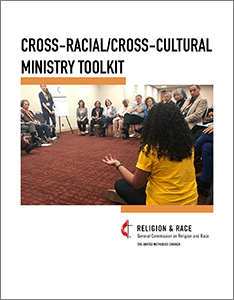How can an incoming pastoral leader lay the groundwork for successful ministry in a congregation where most members are from a different racial or cultural background? The United Methodist General Commission on Religion and Race shares “Do’s and Don’ts” to help new clergy leaders in cross-cultural ministry partnerships begin on the right foot.
1. Honor your predecessor and the history of the church. Don’t speak poorly about your predecessor. Be mindful and respectful of cultural differences in church and community conversations. Don’t blame everything on racist intent when disagreements arise.
2. Acknowledge the congregation’s feelings about the pastoral transition. Don’t act as if the past and the transition are not relevant.
3. Be intentional in forming relationships. Spend time with key leaders and members. Don’t make quick changes before building relationships with members and key leaders.
4. Act with openness and flexibility. Don’t shut down different ways of doing things.
5. Create brave space for honest conversation and feedback. Don’t make drastic assumptions.
6. Spend time with other clergy serving in cross-racial/cross-cultural appointments. Don’t neglect your personal need for intentional community and clergy support systems.
7. Be mindful and respectful of cultural differences in church and community conversations. Don’t blame everything on racist intent when disagreements arise.
8. Invite the congregation to get to know you and your background. Don’t assume that church members are not culturally competent and are unaware of cultural humility.
9. Test your suspicions about “racist” behavior with humility and grace. Don’t assume that questions or criticisms are based on racist beliefs.
10. Listen and observe. Don’t jump to immediate conclusions.
11. Share your vision and your strengths for ministry. Don’t feel you cannot be your authentic self.
12. Practice self-care and the Sabbath. Don’t assume you can jump right into a day-to-day grind trying to prove your worth.
13. Stay connected with family, friends, cultural groups, and support systems and their decisions. Don’t ignore your need for connection to your cultural roots, spiritual practices, and traditions.
 This article is adapted from the Cross-Racial/Cross-Cultural Ministry Toolkit offered by the United Methodist General Commission on Religion and Race. Used by permission. Download the free toolkit now.
This article is adapted from the Cross-Racial/Cross-Cultural Ministry Toolkit offered by the United Methodist General Commission on Religion and Race. Used by permission. Download the free toolkit now.
Related Resources
- The Right Start: Beginning Ministry in a New Setting, a Lewis Center video tool kit resource
- When a Pastor Serves a Church of a Different Racial or Cultural Background by Jasmine Smothers
- Understanding and Honoring Your Congregation’s Unique Culture by Roy Sport







